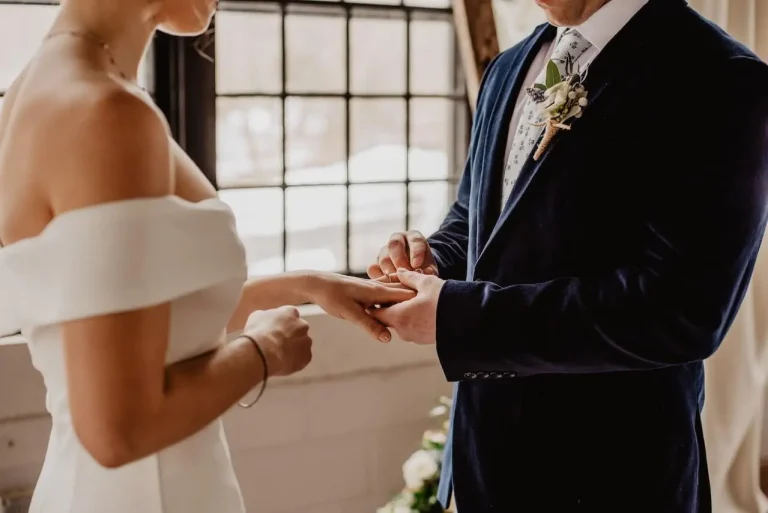Ah, friends with benefits (FWB) relationships—a delightful mix of friendship and physical intimacy without the complications of a committed partnership. It’s like having your cake and eating it too, right?
Well, not quite. Before you dive headfirst into the world of FWB, it’s crucial to understand what friends with benefits don’t do.
Knowing the boundaries and managing expectations can save you from potential heartaches and misunderstandings down the road.
What Friends with Benefits Don’t Do
The FWB Concept
In case you’ve been living under a rock or stuck in a time capsule, let’s quickly recap the concept of friends with benefits relationships. It’s an arrangement where two individuals engage in a casual, non-exclusive relationship that primarily revolves around physical intimacy. You’re friends who also enjoy the benefits of a fun and consensual physical connection.
What FWB Relationships Don’t Involve
Now, let’s get to the good stuff—the things that friends with benefits don’t do:
1. Emotional Commitment
One of the defining aspects of FWB relationships is the emphasis on keeping emotions in check. These connections are primarily driven by physical attraction and mutual pleasure. While you may genuinely care for each other as friends, the romantic lovey-dovey stuff typically takes a backseat.
2. Relationship Labels
FWB relationships thrive in the land of ambiguity. You won’t find official titles like “boyfriend” or “girlfriend” in this dynamic. It’s all about keeping things light and breezy without the burden of labels. So, don’t expect to update your Facebook status anytime soon.
3. Monogamy and Exclusivity
Here’s the deal: FWB relationships are not exclusive. The freedom to explore connections with other people is a fundamental aspect of this setup. If you’re looking for exclusivity, commitment, and monogamy, an FWB arrangement may not be the right fit for you. Keep your options open and embrace the non-exclusive nature of the relationship.
4. Future Planning
In FWB relationships, the focus is on the present moment, not the distant future. You won’t be making long-term plans together, like moving in or picking out baby names. The beauty of FWB lies in its transient nature, allowing both parties to enjoy the moment without worrying about what lies ahead.
The Importance of Understanding Boundaries
Understanding what friends with benefits don’t do is crucial for establishing clear boundaries within the relationship. Here’s why it matters:
- Avoid Misunderstandings: By knowing the limits and expectations from the get-go, you can prevent potential misunderstandings or unmet desires down the line.
- Preserve the Friendship: Establishing boundaries helps maintain the friendship aspect of the relationship. By clarifying what you’re comfortable with and what you’re not, you can ensure that the friendship remains intact even if the physical aspect changes.
- Emotional Well-being: Setting boundaries protects your emotional well-being. It reduces the likelihood of developing unrealistic expectations or catching feelings that may complicate the dynamic.
To navigate the world of FWB successfully, it’s crucial to communicate openly and honestly about your needs, desires, and limits. Remember, clarity is your best friend in this adventure.
In the next section, we’ll delve deeper into the significance of clear communication and boundary-setting in FWB relationships.
Stay tuned for the next part of our comprehensive guide, where we’ll explore the importance of clear communication and boundary-setting in FWB relationships. Buckle up, folks, because we’re just getting started!
Clear Communication and Boundaries
So, you’ve entered into a friends with benefits (FWB) relationship, and now you’re wondering how to navigate this unconventional territory. Well, my friend, the secret sauce lies in open and honest communication right from the start. Here’s why it’s crucial:
Emphasize the Need for Open and Honest Communication
In the world of FWB, communication is the key ingredient that keeps everything running smoothly. You want to ensure that both you and your FWB partner are on the same page, with a clear understanding of each other’s wants, needs, and expectations. By establishing open lines of communication, you can address any concerns, desires, or potential changes in the dynamic as they arise.
Remember, no one is a mind reader. Don’t assume that your partner knows what you want or how you feel. It’s essential to express yourself honestly and directly. While it may feel uncomfortable at first, embracing open communication will lay a strong foundation for a healthy and enjoyable FWB relationship.
The Importance of Setting Clear Boundaries
Boundaries are the invisible fences that protect and guide your FWB connection. They define the limits and expectations for both parties involved. By setting clear boundaries, you can avoid misunderstandings, hurt feelings, or crossed lines. Here are some key aspects to consider when establishing boundaries:
- Physical Boundaries: Determine what you’re comfortable with in terms of physical intimacy. Are there specific activities or acts that are off-limits? Are there any particular preferences or desires that you want to share? Discussing these boundaries openly and respectfully is crucial for ensuring a consensual and enjoyable experience for both of you.
- Emotional Boundaries: While FWB relationships are generally more focused on physical connection, emotions can sometimes sneak in. It’s important to define emotional boundaries early on. Discuss how you both feel about developing deeper emotional connections or whether you’re open to discussing personal matters beyond the scope of the arrangement.
- Communication Boundaries: Establish guidelines for how and when you’ll communicate with each other. Are there certain times that are off-limits? Do you prefer to keep your communication primarily about planning hangouts or do you enjoy occasional check-ins? By clarifying these boundaries, you can avoid potential misunderstandings or expectations of constant availability.
Examples of Boundary-Setting Conversations and Topics
To help you get started, here are some examples of boundary-setting conversations and topics you might consider:
- The Physical Realm: Discuss specific activities, preferences, and any limitations you may have in the bedroom. This can include topics like consent, experimentation, or even contraception if it’s relevant.
- The Emotional Landscape: Have an open conversation about how you both envision the emotional aspect of the relationship. Are you comfortable sharing personal details, or do you prefer to keep things lighter? Express any concerns or fears you might have regarding emotional attachment.
- Communication Expectations: Talk about your preferred methods of communication, frequency, and availability. This can include discussing whether you’re open to texting, phone calls, or if you prefer to keep most of the communication in person.
Remember, setting boundaries is not about stifling the fun but about ensuring that both parties feel respected, comfortable, and understood. These conversations might feel a bit awkward at first, but they are essential for maintaining a healthy and enjoyable FWB relationship.
In the next section, we’ll delve into the realm of emotions and expectations in friends with benefits relationships. Stay tuned to learn how to navigate the potential pitfalls and joys that come with this unique dynamic!
Emotional Connection and Expectations

Alright, my dear reader, let’s dive into the emotional side of friends with benefits (FWB) relationships. While these arrangements are primarily centered around physical intimacy, emotions have a sneaky way of making themselves known. Here’s what you need to know:
FWB Relationships and Physical Intimacy Priority
In FWB relationships, physical intimacy often takes the driver’s seat while emotions enjoy a leisurely Sunday drive in the background. The primary focus is on enjoying a mutually satisfying and consensual physical connection without the commitment and expectations that come with a traditional romantic partnership.
While it may sound like a dreamy arrangement, it’s essential to be mindful of the potential emotional risks that may come into play.
The Risk of Developing Romantic Feelings
You’re only human, and emotions can be tricky little creatures. As you spend more time with your FWB, engaging in intimate moments and sharing personal experiences, it’s natural for feelings to develop. The chemistry and connection you feel may trigger those pesky romantic inklings.
But here’s the kicker: FWB relationships aren’t designed to be romantic or exclusive. Falling head over heels for your FWB can lead to heartache and disappointment if your feelings aren’t reciprocated or if they conflict with the agreed-upon boundaries of the arrangement.
Managing Emotions and Addressing Emerging Feelings
So, what can you do when emotions start knocking at your heart’s door? Here are a few tips to help you navigate the emotional rollercoaster of FWB relationships:
- Honest Self-Reflection: Take a moment to reflect on your feelings and motivations. Are you genuinely okay with keeping things casual, or do you desire a deeper connection? Understanding your own emotional landscape will help you make informed decisions about the future of the relationship.
- Communication Is Key: If you find yourself developing romantic feelings, it’s crucial to communicate with your FWB partner openly and honestly. Express your emotions, concerns, and desires while respecting their boundaries. Remember, they may or may not share the same feelings, and it’s essential to be prepared for that possibility.
- Reassess and Realign: Periodically reassess your own emotional well-being and the status of the FWB relationship. If your feelings become too intense or the dynamic is no longer fulfilling, it may be time to reevaluate whether continuing the FWB arrangement is the right choice for you.
Remember, managing emotions in FWB relationships requires self-awareness, open communication, and an understanding of the boundaries you’ve established. Be prepared for potential emotional challenges, and don’t hesitate to seek support from trusted friends or even a therapist if needed.
In the next section, we’ll explore the importance of regular check-ins and reassessments in FWB relationships. Stay tuned to discover how these practices can help maintain a healthy dynamic and ensure both parties are still on the same page.
Regular Check-Ins and Reassessments
Ah, the beauty of a friends with benefits (FWB) relationship—casual, flexible, and without the pressure of long-term commitment. But here’s the thing: just because it’s casual doesn’t mean it should be completely carefree. Regular check-ins and reassessments are crucial to maintaining a healthy dynamic. Let’s dive in and explore why:
Expert Says
Licensed Marriage and Family Therapist | Founder, The Relationship Place

Encourage Periodic Check-Ins
Life is ever-changing, and so are our desires, needs, and boundaries. That’s why it’s important to have periodic check-ins with your FWB partner. These check-ins serve as a reality check, ensuring that both parties are still on the same page and content with the arrangement. Regular communication helps prevent assumptions and keeps the lines of dialogue open.
Think of it as a gentle pit stop during your FWB journey. You want to make sure everyone’s enjoying the ride and that there are no unexpected detours ahead.
The Benefits of Reassessing the FWB Arrangement
Reassessing your FWB arrangement over time offers several benefits. It allows you to:
- Evaluate Your Own Feelings: Take a moment to reflect on how the FWB dynamic is affecting you emotionally, physically, and mentally. Are you still content with the arrangement, or do you find yourself desiring something more or less? Understanding your own feelings is essential for making informed decisions about the future of the relationship.
- Ensure Mutual Satisfaction: Checking in with your FWB partner allows both of you to voice any concerns, desires, or changes in boundaries that may have emerged over time. It ensures that both parties are still enjoying the arrangement and that everyone’s needs are being met.
- Navigate Potential Shifts: Life has a funny way of throwing curveballs. There may come a time when either you or your FWB partner wants to change the nature of the relationship, whether that means transitioning to a committed partnership, exploring other connections, or parting ways altogether. Regular reassessments provide an opportunity to discuss these shifts openly and honestly, allowing for smoother transitions or adjustments.
Tips for Initiating Conversations about the Status of the Relationship
Broaching the topic of the FWB relationship’s status doesn’t have to be an awkward ordeal. Here are a few tips to make those conversations a little smoother:
- Choose the Right Time: Find a comfortable and relaxed setting where you can have an open conversation without distractions or time constraints.
- Be Direct and Honest: Clearly express your thoughts, feelings, and any changes you’ve noticed in your own desires or boundaries. Encourage your FWB partner to do the same.
- Listen and Validate: Give each other space to share without judgment. Validate each other’s feelings and concerns, even if they differ from your own. Remember, this is a collaborative conversation aimed at finding mutual understanding.
By incorporating regular check-ins and reassessments into your FWB relationship, you demonstrate care and respect for both yourself and your partner. It’s a way to ensure that the arrangement remains fulfilling and enjoyable for both parties involved.
In the next section, we’ll explore the importance of mutual respect and consent within FWB relationships. Buckle up, because we’re diving into the realm of healthy boundaries and courteous behavior!
Mutual Respect and Consent
When it comes to friends with benefits (FWB) relationships, mutual respect and consent are absolute must-haves. While the dynamic may be casual, it’s crucial to treat each other with kindness, consideration, and respect. Let’s delve into why these aspects are so important:
Stressing the Importance of Respect and Consideration
In any relationship, respect forms the foundation for healthy interactions. In an FWB setup, it’s no different. Here’s why treating each other with respect and consideration is key:
- Preserving the Friendship: Remember, you were friends before embarking on this FWB adventure. By showing respect and consideration, you maintain the friendship aspect, even if the physical side takes precedence. It’s about valuing each other as individuals beyond the realm of the arrangement.
- Creating a Safe Environment: Mutual respect fosters a safe environment where both parties can freely express themselves, voice concerns, and navigate the dynamics of the relationship with comfort and trust.
- Avoiding Hurtful Behavior: Respect and consideration help prevent hurtful behavior, misunderstandings, and conflicts. It’s about being mindful of each other’s feelings and being considerate in your actions and words.
The Significance of Consent in All Interactions
Consent is a vital element of any relationship, and FWB dynamics are no exception. It’s essential to obtain consent in all interactions, including sexual encounters. Here’s why:
- Empowering and Respecting Boundaries: Consent ensures that both parties have control over their own bodies and experiences. It empowers individuals to set and communicate their boundaries, and it shows respect for those boundaries.
- Building Trust and Safety: When consent is consistently prioritized, it builds trust and creates a safe environment for exploration and intimacy. It allows both partners to feel secure and respected throughout the entire FWB journey.
- Open Communication and Continuous Consent: Remember that consent is an ongoing process. It’s not a one-time thing but a continuous dialogue. Regularly check in with each other, communicate openly, and ensure that consent is present at every stage of the relationship.
Navigating Potential Conflicts and Resolving Issues Respectfully
Conflict and misunderstandings can happen in any relationship, even in FWB arrangements. When conflicts arise, it’s important to address them respectfully. Here are some tips to navigate potential conflicts:
- Open and Honest Communication: Express your concerns or issues openly and honestly, using “I” statements to convey your feelings without blaming the other person.
- Active Listening: Give your FWB partner an opportunity to express themselves and actively listen to their perspective. Seek to understand their point of view, even if you may disagree.
- Finding Common Ground: Look for common ground and find solutions that are mutually beneficial. Compromise and flexibility can go a long way in resolving conflicts and maintaining a positive dynamic.
Remember, navigating conflicts respectfully not only helps resolve issues but also strengthens the trust and understanding between both parties.
In the next section, we’ll tackle the topic of jealousy and exclusivity within FWB relationships. Stay tuned to learn how to keep the green-eyed monster at bay and embrace the non-exclusive nature of this arrangement!
Avoiding Jealousy and Exclusivity
Ah, jealousy—the green-eyed monster that can wreak havoc on even the strongest of friendships and relationships. In friends with benefits (FWB) arrangements, jealousy can be a tricky beast to tame. But fear not! We’re here to guide you on how to avoid jealousy and embrace the non-exclusive nature of FWB relationships.
Addressing the Challenges of Jealousy within FWB Relationships
Jealousy can stem from a variety of factors, including feelings of possessiveness, fear of losing the connection, or the desire for exclusivity. In FWB relationships, jealousy may rear its head when one partner perceives or imagines that the other is involved with someone else.
It’s important to remember that FWB relationships are built on the foundation of casual connections without exclusivity. Here are some strategies to help you navigate the challenges of jealousy:
- Maintain Realistic Expectations: Remind yourself of the nature of the FWB relationship and the agreed-upon boundaries. Understanding that exclusivity is not expected can help manage expectations and reduce feelings of jealousy.
- Open Communication: If jealousy does arise, it’s crucial to communicate openly and honestly with your FWB partner. Share your concerns and fears, ensuring that you both have a clear understanding of each other’s perspectives. This open dialogue can help address any misunderstandings and strengthen the trust between you.
- Focus on Emotional Independence: Cultivate emotional independence within the FWB relationship. While you can enjoy the physical connection and friendship, it’s important to have fulfilling personal lives outside of the arrangement. Engage in hobbies, spend time with friends, and pursue your own interests. By nurturing your individuality, you can minimize feelings of jealousy and dependence.
Strategies for Managing Jealousy and Promoting Emotional Independence
Here are some additional strategies to help you manage jealousy within your FWB relationship and promote emotional independence:
- Practice Self-Care: Engage in activities that boost your self-esteem and well-being. Taking care of yourself physically, mentally, and emotionally can help you maintain a healthy perspective and reduce jealousy.
- Cultivate a Supportive Network: Surround yourself with supportive friends and loved ones who can provide guidance, understanding, and a listening ear when needed. Having a strong support system can help you navigate any challenging emotions that may arise.
- Practice Mindfulness: Stay present and focus on enjoying the moments you share with your FWB partner without getting caught up in what-ifs or comparisons. Mindfulness can help you appreciate the connection for what it is and avoid unnecessary jealousy.
Why Exclusivity is Generally Not Expected in FWB Arrangements
FWB relationships are built on the premise of non-exclusivity. Here’s why exclusivity is typically not expected in FWB arrangements:
- Freedom and Exploration: FWB relationships provide individuals with the freedom to explore connections with others, fostering personal growth, and expanding experiences.
- No Commitment Pressure: By not expecting exclusivity, FWB relationships remove the pressure of committing to one person. This allows both parties to enjoy the benefits of intimacy and friendship without the weight of long-term commitment.
- Flexibility and Spontaneity: The non-exclusive nature of FWB arrangements allows for flexibility and spontaneity, creating a dynamic that can be exciting and adventurous.
Remember, every FWB relationship is unique, and the expectations may vary. It’s essential to have open conversations about exclusivity and clarify the boundaries with your FWB partner to ensure both parties are on the same page.
In the next section, we’ll explore how to gracefully end or transition an FWB relationship.
Ending or Transitioning the FWB Relationship
All good things must come to an end, and friends with benefits (FWB) relationships are no exception. If you find yourself wanting to end the FWB arrangement or explore a different type of connection, we’ve got you covered. Let’s delve into how to gracefully navigate the end or transition of an FWB relationship.
Providing Advice on Ending the FWB Relationship
If you feel that the FWB arrangement is no longer fulfilling or aligning with your desires, it may be time to consider ending the relationship. Here’s some advice to help you through the process:
- Honest Communication: Be open and honest with your FWB partner about your feelings and intentions. Let them know that you’re ready to move on or explore different options. Clear communication ensures that both parties are on the same page and helps prevent misunderstandings.
- Express Gratitude: Acknowledge the positive aspects of the FWB relationship and express gratitude for the experiences shared. This helps maintain the friendship aspect and ensures a respectful parting of ways.
- Give Space: After ending the FWB relationship, it’s important to give each other space and time to process the change. Respect the boundaries and emotions of both parties during this transition.
Discussing the Possibility of Transitioning to a Different Type of Relationship
Sometimes, FWB relationships naturally evolve into something more or different. If you find yourself developing deeper feelings or wanting to explore a committed partnership, transitioning to a different type of relationship may be worth considering. Here are some things to keep in mind:
- Open and Honest Conversation: Talk openly with your FWB partner about your changing feelings and desires. Discuss the possibility of transitioning to a different type of relationship, such as a committed partnership or an open relationship.
- Mutual Consent and Agreement: Transitioning to a different relationship dynamic requires mutual consent and agreement from both parties involved. It’s crucial to ensure that everyone involved is on board and comfortable with the changes.
- Navigating Emotional Challenges: Transitioning from an FWB relationship to a different type of connection can bring about emotional challenges. Be prepared to navigate these challenges together, communicate openly, and offer support to each other along the way.
Tips for Navigating the Potential Emotional Challenges of Transitioning
Transitioning from an FWB relationship can bring up a range of emotions for both parties involved. Here are some tips to help navigate the potential challenges:
- Take It Slow: Allow yourself and your partner time to adjust to the new dynamic. Take things at a pace that feels comfortable for both of you.
- Seek Support: Lean on your support system, whether it’s friends, family, or a therapist, to process your emotions and seek guidance during this transition.
- Manage Expectations: Be mindful that transitioning to a different type of relationship doesn’t guarantee a specific outcome. It’s important to manage expectations and be open to the possibilities that may arise.
Remember, ending or transitioning an FWB relationship can be an opportunity for personal growth and exploration. By communicating honestly, expressing gratitude, and respecting each other’s emotions, you can navigate the process with grace and integrity.
In the final section, we’ll wrap up our comprehensive guide and offer some closing thoughts on FWB relationships. Stick around for the grand finale!
Conclusion
Congratulations, my friend! You’ve reached the end of our comprehensive guide on friends with benefits (FWB) relationships. Let’s recap the key points we’ve covered throughout this enlightening journey:
Summarizing the Key Points
- Understanding FWB Relationships: FWB relationships are casual arrangements that prioritize physical intimacy without the commitment and expectations of a traditional romantic partnership.
- Clear Communication and Boundaries: Open and honest communication is vital from the start, along with setting clear boundaries to avoid misunderstandings and ensure both parties are on the same page.
- Emotional Connection and Expectations: FWB relationships primarily prioritize physical intimacy over emotional attachment, but it’s crucial to manage emotions and address any emerging feelings to maintain a healthy dynamic.
- Mutual Respect and Consent: Treating each other with respect and consideration is essential in FWB relationships, as is obtaining consent in all interactions, including sexual encounters.
- Avoiding Jealousy and Exclusivity: Jealousy can be a challenge, but by managing expectations, fostering emotional independence, and communicating openly, you can navigate these emotions successfully. Remember, FWB relationships are typically non-exclusive.
- Ending or Transitioning the FWB Relationship: If the FWB relationship is no longer fulfilling or if you desire a different connection, open and honest communication is key. Consider ending the relationship with gratitude and respect, or explore the possibility of transitioning to a different type of relationship with mutual consent.
Reiterating the Importance of Communication, Boundaries, and Expectation Management
Throughout this guide, we’ve emphasized the significance of clear communication, setting boundaries, and managing expectations in FWB relationships. These elements are the building blocks for healthy and fulfilling dynamics.
Remember, my dear reader, that FWB relationships work best when both parties are open, honest, and considerate. Regular check-ins, respect for boundaries, and ongoing consent are essential to maintaining a harmonious connection.
Encouraging Self-Reflection and Needs Assessment
Before entering or continuing a FWB arrangement, take a moment to reflect on your own needs, desires, and boundaries. Consider what you truly want and assess whether an FWB relationship aligns with your goals and values. It’s important to prioritize your emotional well-being and ensure that the arrangement meets your expectations.
Now, armed with the knowledge and insights from this guide, you’re well-equipped to navigate the realm of FWB relationships with confidence and clarity. Remember, every relationship is unique, and it’s up to you to define and shape your own journey.
So go forth, my friend, and may your FWB adventures be filled with respect, enjoyment, and memorable experiences!
Disclaimer: The content provided in this article is for informational purposes only and should not be construed as professional advice. Always consult with a qualified professional regarding your specific situation.
FAQ
Can friends with benefits become romantic partners?
While FWB relationships prioritize casual intimacy, they can sometimes evolve into something more. However, it’s important to communicate openly with your partner about your feelings and desires to ensure both parties are on the same page.
Is exclusivity expected in friends with benefits relationships?
Exclusivity is generally not expected in FWB relationships. These arrangements focus on casual connections without the commitment of a traditional romantic partnership. It’s important to communicate and set clear expectations with your FWB partner.
Can jealousy arise in friends with benefits relationships?
Yes, jealousy can be a challenge in FWB relationships. Managing expectations, fostering emotional independence, and open communication can help navigate and address feelings of jealousy that may arise.
Can friends with benefits relationships turn into long-term commitments?
While it’s possible for FWB relationships to transition into long-term commitments, it’s important to have open and honest communication with your partner. Both parties should express their desires and intentions to ensure compatibility and mutual understanding.
How do you end a friends with benefits relationship?
To end an FWB relationship, communicate your feelings honestly and respectfully. Express gratitude for the experiences shared, and give each other space to process the change. Clear communication and mutual respect are key in gracefully ending the arrangement.






